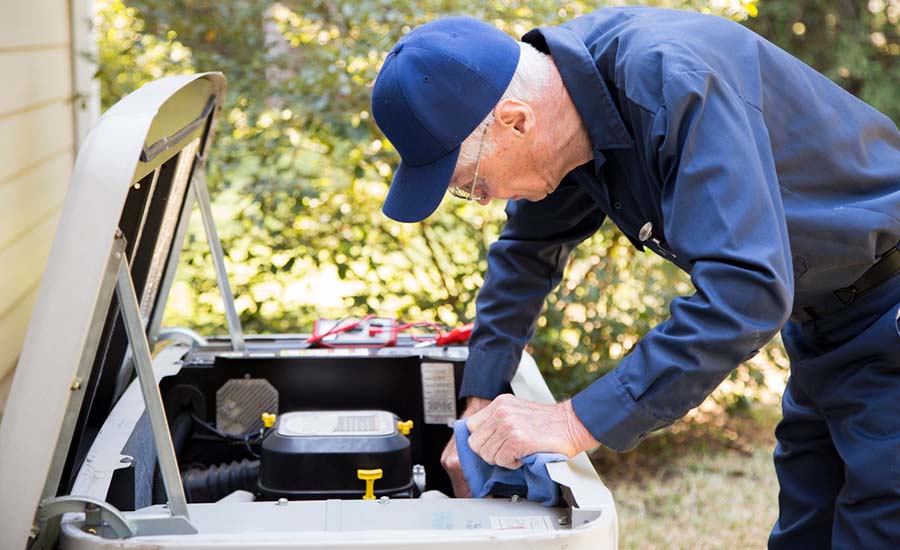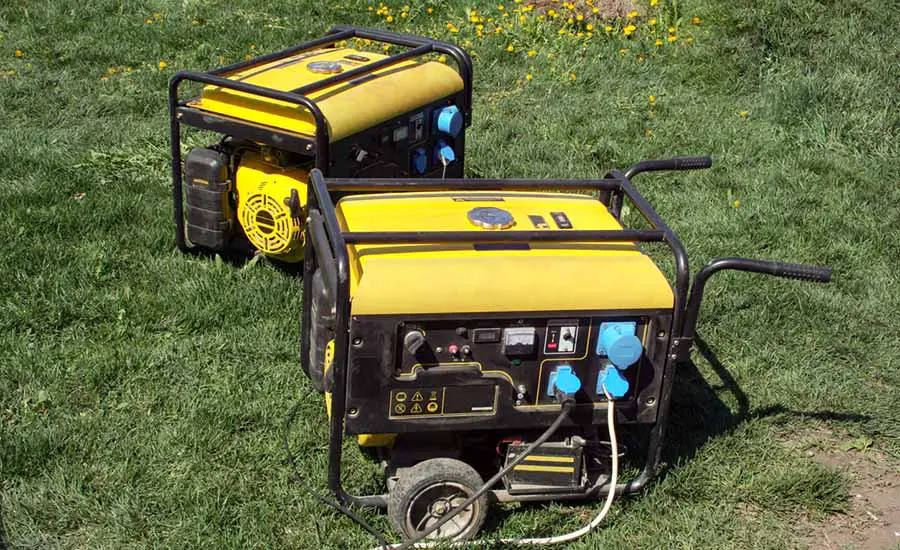
Generators are generally expensive items to buy. The more power you require, the higher the cost of the unit. Most people staying in areas heavily affected by power outages see a generator as an investment and worth every cent. They keep businesses up and running when a power failure occurs and keep households functioning when disaster strikes.
Generators are expensive, especially when you install a generator that provides power to your whole home. The type of generator, the power capability, installation cost, and fuel type that the generator will be running on will all play a role in why generators are so expensive.
Generator types vary, and choosing one over the other could save you a lot of money. Deciding to go for a fuel-powered portable generator over an inverter generator will not only save you money but also provide you with more power. The downside is that it uses more fuel and makes a lot more noise, something to consider when buying a new generator.
Why Are Generators So Expensive?
Generating your own power will always be more expensive than using electricity from the national power grid. Using electricity from the grid should always be your primary option. However, if you have been experiencing frequent power outages, then investing in a generator makes perfect sense. Here are some of the reasons why generators are so expensive.
According to HomeAdvisor, most people spend between $1,411-$7,626 when installing a generator. The average installation price is roughly $4,476. Generator prices can range from $400-$15,000 depending on what type of generator you buy and the generator’s power output.
The Type of Generator Affects the Price
One of the biggest variables in cost will be the type of generator that you purchase.
| Generator Type | Cost |
| Natural Gas | $1,900-$6,000 |
| Gasoline | $500-$3,000 |
| Liquid Propane | $500-$6,000 |
| Diesel | $3,000-$15,000 |
| Solar | $300-$5,000 |
Natural Gas
- This is generally a higher-priced generator.
- Do not require fuel to be stored.
- Attaches to the utility grid (gas lines).
- Performs well in cold climates.
- Uses more fuel than other generator types.
Gasoline
- Most cost-effective option.
- Gasoline is freely available.
- Difficult to store.
- Short shelf life.
- Issues starting in cold weather.
Liquid Propane
- As a fuel, it burns clean.
- Indefinite shelf life if stored correctly.
- Models tend not to last as long as other generators.
- Fuel is difficult to store.
Diesel
- Commonly used to power the whole house.
- These larger units run more efficiently than natural gas and gasoline generators.
- A great option for when you need loads of power.
- It is generally more expensive as it is built with heavier components and thicker metal due to higher cylinder pressure.
- Fitted with an expensive fuel injection system which also hikes the price up.
- Power output is probably the strongest of all generator types; normally, they are used as a whole house generator and on construction sites, which implies that they are more than capable of being used as a primary use unit.
Solar
- Sustainability is a big benefit when using solar systems.
- It does not require constant refueling.
- Smaller units struggle to store ample energy.
- Affected by the weather.
- Solar panels are costly.
The Power Output of the Generator
Generally, the power output would increase the price considerably. Think about it, the more kilowatts the generator produces, the more you will pay for this ability to keep your home or business functioning during a power shortage.
Let us have a look at how the kilowatt output increases the price of the generator. We will use Generac generators as an example. Generac is one of the leaders when it comes to permanent whole house generators, and their generators run on natural gas or liquid propane.
| Power Output | Average Price | Coverage |
| 7 KW | $ 2,000 | 1 Appliance/ 8 circuits |
| 11 KW | $ 3,000 | 2 Appliances/16 circuits |
| 16 KW | $ 3,800 | Full 1000-3000 square foot home |
| 17 KW | $ 4,500 | Full 1000-3000 square foot home |
| 20 KW | $ 5,000 | Full 3000-5000 square foot home |
| 22 KW | $ 5,800 | Full 5000+ square foot home |
| 30 KW | $ 12,000 | Commercial Applications |
The Installation Cost

When you purchase a permanent whole house generator, there are extra costs to take into consideration. The cost of having your generator installed by a professional is a considerable one. These costs can sometimes be just as expensive as your generator!
The general rule is to add 75% of the generator’s purchase price to the installation cost. The average installation price is roughly $4,476, but it can literally be anywhere between $500-$11,000.
When you invest in a portable generator, you will not be liable for this cost. Remember to take into account that portable generators are usually not as powerful as permanent whole house generators. Make sure to add up your calculations before purchasing anything.
Most installers charge a set fee per project, and the national average for installations is around $4,500, but it can literally be anywhere between $500-$11,000. Installations normally take a day to complete.
Let’s examine what a professional could charge you for installing a generator:
| Task | Cost |
| Prepping installation site/Constructing concrete pad | $50-$75 per square feet |
| Installing an additional fuel tank/Joining existing utility lines | $50-$100 per hour |
| Permissions and permits | $50-$200 per permit |
| Equipment and materials | $300-$2,000 |
| Electrical panel, new wiring, and transfer switch | $65-$85 per hour |
| Calculating energy requirements | Usually free of charge |
Why Your Generator’s Fuel Type Make It Expensive To Run

The type of fuel that your generator operates on also plays a part in why generators are so expensive.
Diesel generators produce the most power. Running on a full load (20 KW) will roughly consume 1.6 gallons of diesel per hour. Diesel is selling at roughly $3 per gallon as of today.
- Estimate = 1.6 gallons x $3 = $4,8 per hour
Gasoline is readily available but not easy to store. Running on a full load will roughly consume 3.6 gallons of gasoline per hour. Gasoline is selling at roughly $2.91 per gallon as of today.
- Estimate = 3.6 gallons x $2.91 = $10.47 per hour
Liquid propane gas burns clean and is easy to store. Running on a full load (20KW) will roughly consume 3.5 gallons of propane per hour. Liquid propane is selling at roughly $2,50 per gallon as of today.
- Estimate = 3.5 gallons x $2.50 = $8.75 per hour
The most cost-effective fuel to have your generator run on is natural gas. You will probably have to fit an extra tank as this type of fuel burns out quickly. An extra tank could cost you about $ 500 or thereabout. Installing this tank will cost you between $50-$100 per hour in labor charges to install.
Related Questions
We have discussed some of the factors and reasons that make generators so expensive. Here are a few more information bites to enlarge your knowledge of the generator world.
Why Are Inverter Generators So Expensive?
Inverter generators are designed to only run at full power when it is required. This type of generator electronically controls the engine’s throttle, either up or down, to meet the power demand. This function decreases fuel consumption.
What Is The Fuel Cost Factor?
This refers to the cost of the fuel your generator runs on and the fuel available in your area. Your generator’s fuel capacity will be the determining factor of how much you will spend on fuel.
Conclusion
When deciding to purchase a generator, there are many factors to consider before handing over the cash. Approaching the purchase with an investment mindset may make it easier to part with your money.
Providing power to your home or business when the power cuts out is a massive advantage. Working from home is even more of a reason to invest in a generator so that you can continue earning money even when the national power grid fails you.
Calculate how much power you will need beforehand and buy the appropriate generator. Don’t spend $15,000 on a generator that produces 30,000 kW when your requirements are more like 15,000 kW.
Do your homework regarding what fuel type will be the most cost-effective for your generator’s working environment. Think about how often your power cuts out and for how long? Do the math yourself or ask a professional to help.
And most importantly, be aware that you need to add the possible installation cost to your generator’s price. Permanent whole house generators have a life expectancy of 20 years, so invest today.
